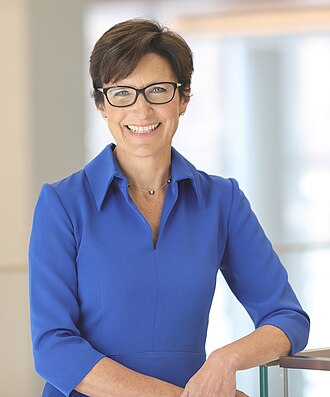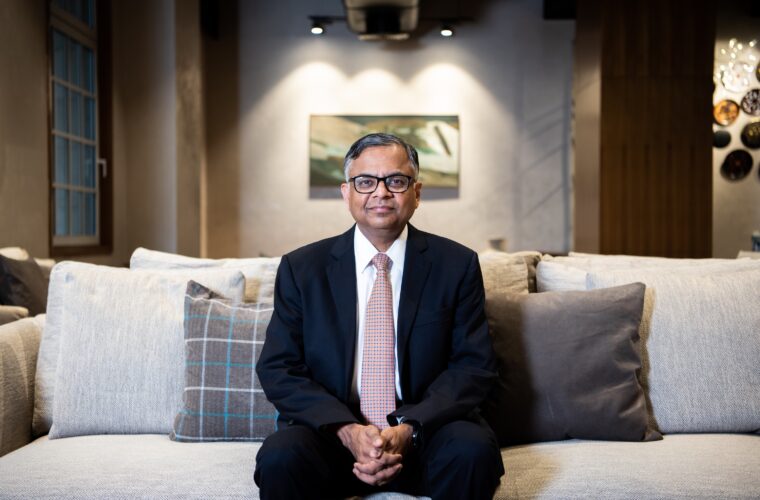Jane Fraser’s story is about ambition, resilience, and groundbreaking achievements. As the Chief Executive Officer of Citi, Fraser stands as a beacon of inspiration for women, business leaders, and aspiring professionals worldwide. Her journey through the ranks of one of the world’s largest financial institutions exemplifies determination, leadership, and the ability to innovate in a rapidly changing industry.
Rising through the ranks
Jane Fraser’s ascent to the role of CEO at Citi is a testament to her unwavering commitment and expertise. She joined Citi in 2004 in the Corporate and Investment Banking division, bringing with her a wealth of experience from her previous role as a Partner at McKinsey & Company. Her strategic acumen quickly became evident, and she soon took on significant leadership roles within the bank. Fraser served as the Global Head of Strategy and Mergers & Acquisitions during the tumultuous period of the financial crisis, demonstrating her ability to steer the organization through challenging times.
Her tenure at Citi has been marked by high-profile positions, including CEO of Citi’s Private Bank, CEO of Citigroup Latin America, and ultimately, President of Citi and CEO of the Global Consumer Bank. Each role she undertook provided her with a deeper understanding of the bank’s diverse operations and global reach. These experiences laid a strong foundation for her eventual rise to CEO, making her the first woman to lead a major Wall Street bank.
Jane Fraser: transforming Citi for the digital age
Since assuming the CEO role in March 2021, Jane Fraser has embarked on an ambitious multi-year strategy to transform Citi. Her vision is to simplify and modernize the bank, ensuring it remains a leading partner for institutions with cross-border needs, a global leader in wealth management, and a valued personal bank in the U.S. This transformation is crucial as the banking industry faces rapid technological advancements and evolving customer expectations. Fraser’s comprehensive approach focuses on digital innovation, operational efficiency, and a client-centric model. By leveraging technology, she aims to streamline operations, enhance customer experiences, and position Citi as a forward-thinking financial institution. Her commitment to these goals underscores her belief in the need for continuous evolution and adaptation in a competitive global market.
Jane Fraser’s appointment as CEO is historic for Citi and the entire banking industry. As the first female CEO of a major Wall Street bank, she has shattered a significant glass ceiling, paving the way for more women to aspire to and attain leadership positions in finance. Her achievement is a powerful reminder of the importance of diversity and inclusion in the corporate world. Fraser’s leadership style is characterized by empathy, resilience, and a deep understanding of the challenges faced by working parents. As a mother of two, she has often spoken about the difficulties of balancing a demanding career with family responsibilities. Her candidness about these struggles has resonated with many, making her a relatable and inspiring figure for women striving to achieve a similar balance in their lives.


Recognition and influence
Jane Fraser’s influence extends beyond her role at Citi. She serves on the Board of Directors of the Business Roundtable and the Council on Foreign Relations, among other prestigious organisations. Her involvement in these bodies reflects her commitment to shaping the future of business and finance on a global scale. In 2023, Fraser was ranked #7 on Forbes’ Power Women list, a testament to her significant impact and leadership in the financial sector. Her inclusion in Forbes’ “50 Over 50” list in 2021 further underscores her achievements and the respect she commands within the industry.
Fraser’s leadership journey offers valuable lessons for aspiring leaders. Her emphasis on prioritisation, efficiency, and empathy has driven her success and fostered a more human-centric approach to business. She advocates for focusing on what truly matters, a principle she adopted during her early years of balancing motherhood and a burgeoning career. This 80-20 approach—focusing on the 20% of efforts that yield 80% of results—has been instrumental in her ability to manage multiple high-stakes responsibilities effectively. Moreover, Fraser’s ability to say no and set boundaries has been crucial in maintaining her focus and delivering impactful results. This skill is particularly relevant in today’s fast-paced work environment, where prioritising and delegating are essential for sustained success.
Jane Fraser: A role model for future generations
Jane Fraser’s story is not just one of personal achievement but also of paving the way for future generations. Her success challenges traditional norms and inspires a more inclusive vision of leadership. She demonstrates that with dedication, strategic thinking, and a commitment to continuous improvement, it is possible to reach the highest echelons of any industry. Her journey also highlights the importance of mentorship and support systems in career development. By sharing her experiences and challenges, Fraser provides a roadmap for other women aspiring to leadership roles, encouraging them to pursue their ambitions with confidence and resilience.
Jane Fraser’s tenure as CEO of Citi marks a significant milestone in the banking industry. Her innovative vision for the future of banking, coupled with her commitment to diversity and inclusion, sets her apart as a transformative leader. Fraser’s story is a powerful source of inspiration, illustrating that with perseverance and strategic foresight, one can break barriers and lead with impact. As she continues to navigate the complexities of the financial world, Jane Fraser remains a role model for women in business and beyond. Her legacy will undoubtedly inspire future generations to aspire to greatness and to lead with purpose and empathy.



